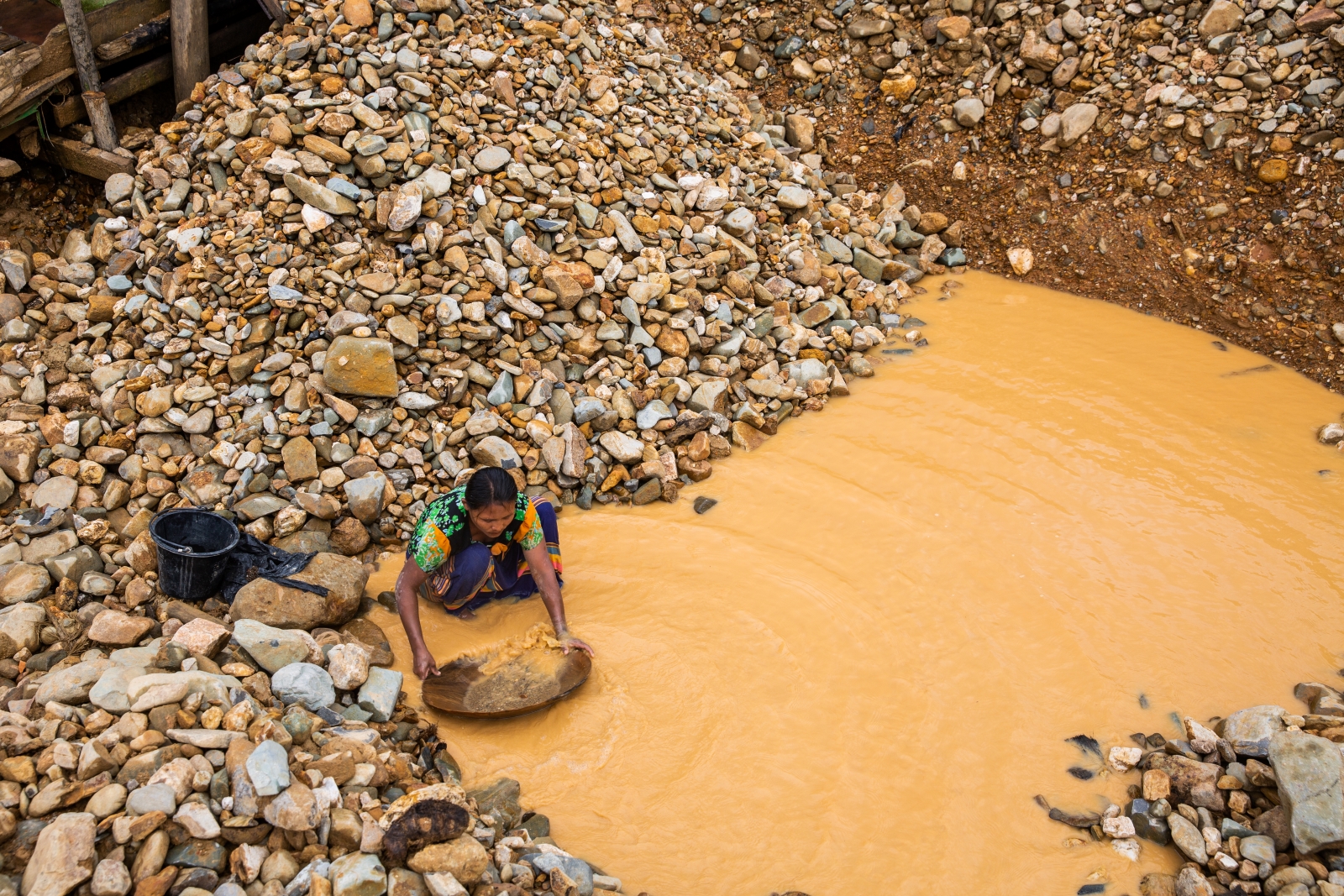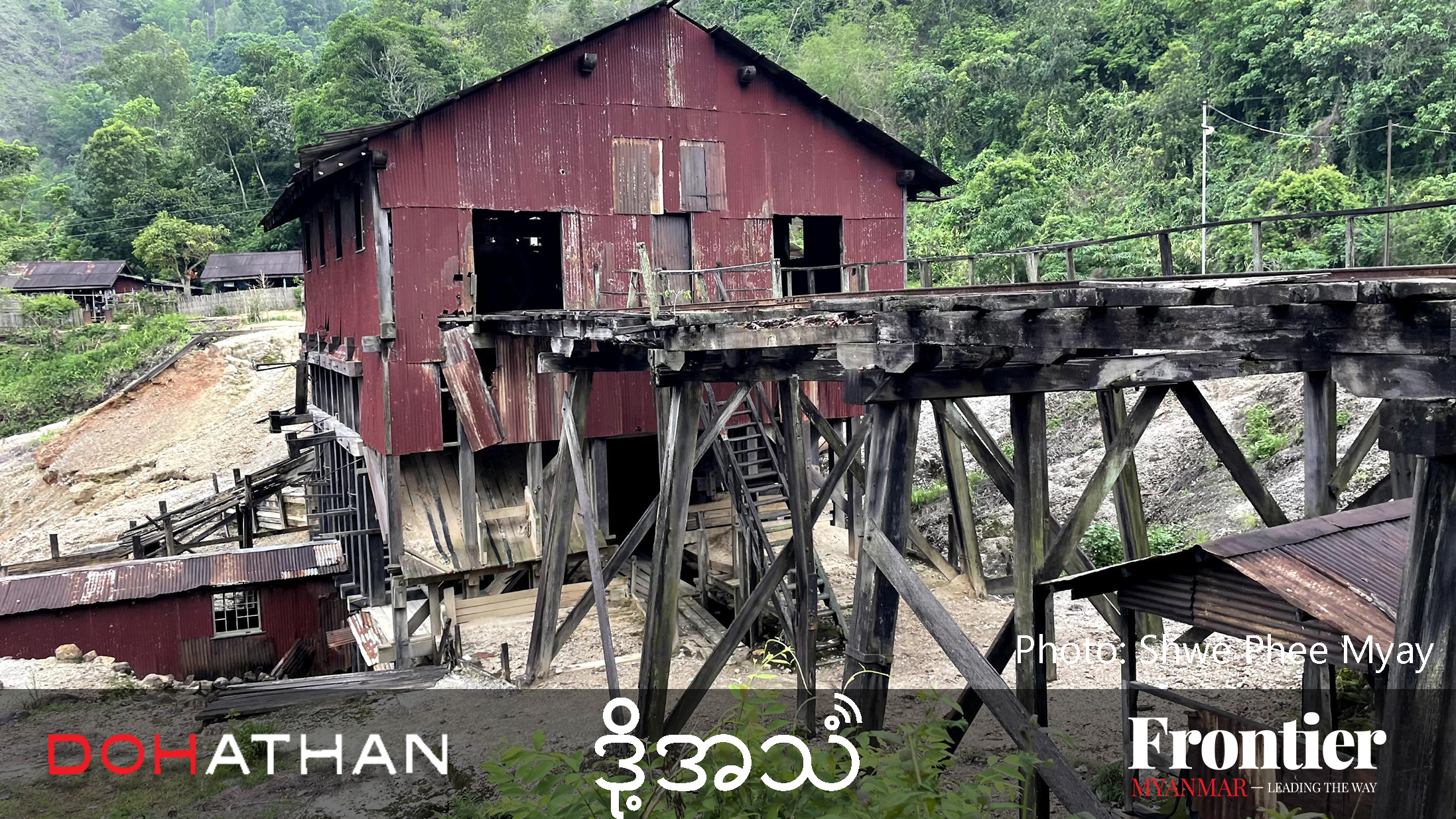A government lawsuit to recover $82 million has taken the shine out of a gold mining company that was able to secure favourable contracts with the previous administration.
By SITHU AUNG MYINT | FRONTIER
THE NATION’s biggest gold-mining company is in big trouble. A contract between National Prosperity Co Ltd and the government has been cancelled by the Ministry of National Resources and Environmental Conservation.
The ministry’s director general, U Than Daing, told a news conference in Nay Pyi Taw on May 17 that the government intends to sue National Prosperity to recover gold it is owed – about 63,000 ounces, worth more than US$82 million at the current price for the precious metal. How did this happen? What were the terms of the contract signed by the government and the company? Why was the contract cancelled?
In September 2011, the Union Solidarity and Development Party government of President U Thein Sein invited tenders to mine for gold in a block covering 6,100 acres (2,468 hectares) in the auriferous Moehti Moemi area of Mandalay Region’s eastern Yamethin Township.
NPC, headed by U Soe Htun Shein, won the tender from 17 competitors with a bid that promised to pay a total of 3,400 viss of gold, or 5.44 tonnes, over the contract’s initial term of five years. A viss is the equivalent of 1.6 kilograms or 3.6 pounds.
Support more independent journalism like this. Sign up to be a Frontier member.
Under the terms of the contract, NPC was required to invest not less than $2 million plus K1.5 billion in the gold mine. NPC was given until March 2012 to prepare the block for mining and from April that year until February 2016 was required to pay the government 73 viss of gold – 116.8 kg – a month.
The company claimed to be unable to meet its contractual obligation, saying it was not given enough time for site preparation. It sought an amendment to the contract, which was approved by the President’s Office. The new contract signed on November 26, 2013, extended the mining licence to eight years, to August 2019.
The amended contract required NPC to pay the government a total of 5.44 tonnes of gold by the end of the eight years, and allowed it to continue operating the mine for another 18 years under a production sharing arrangement, with 70 percent going to NPC and the balance to the government.
The favourable terms of the new contract reduced the amount of gold the company had to pay the government and granted it more time for mining operations. The payment of gold had been divided into four periods.
In the original contract, the company was required to pay 438 viss for six months, a rate of 73 viss a month. From January 2014 to March 2016, payment was set at an average of 24 viss a month, from April 2015 to December 2015 at 36 viss a month, and from January 2016 to September 2019, at 60 viss a month.
However, the company was unable to meet the payments. Less than a year later, it proposed a second amendment to its contract with the USDP government, which was approved on September 12, 2014. The amended contract adjusted the amount of gold the company was required to pay the government each month, but the obligation to provide 5.44 tonnes of gold over eight years was not changed.
From January 2017 to the expiry of the contract, NPC was required to pay 90 viss of gold a month. This meant that NPC was required to pay 360 viss to the end of 2016, and pay another 3,000 viss over the last three years of the contract. It seems that the USDP government was always willing to accommodate requests from the company.
After the National League for Democracy government came to office in March 2016, NPC submitted another request to the Ministry of National Resources and Environmental Conservation to amend the contract, on the grounds that it was unable to meet its gold payment obligations.
The government established an independent team of mining industry specialists to conduct an independent study, which found that the company could meet its payment obligations and there was no need to amend the contract.
The ministry responded by ordering NPC to continue operations and to pay gold as prescribed in the contract.
When it failed to meet its payments, NPC’s gold mining permit was revoked in February and the government terminated the contract 90 days later, on May 17. The end of work on the site has left many workers without jobs.
An industry source told Frontier that gold mining companies know soon after launching operations if a site will be economically viable. The source said the fact that NPC had been mining at Moehti Moemi for six years was an indication the site had viable gold deposits.
There has been a series of cases under previous governments in which companies bid large amounts to clinch contracts. If there were problems, the companies would then seek redress and the governments were invariably amenable to favourable solutions, often tainted by the whiff of corruption.
That has changed under the NLD government, which deserves praise for suing a large mining company to get gold worth more than $82 million that it is rightly owed.







